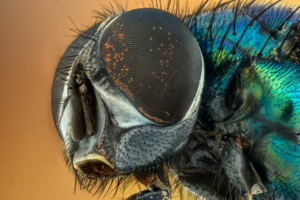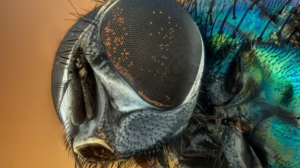The Role of Gut Microbiomes: How Bacteria Influence Animal Health and Behavior
Introduction
The quest to understand the intricacies of animal health and behavior has taken a significant turn in recent years with the emergence of microbiome research. The gut microbiome, a complex ecosystem of microorganisms residing in the gastrointestinal tract, has steadily garnered attention for its profound implications on health, nutrition, and behavior in various animal species. This article explores the burgeoning field of microbiome research, detailing how gut bacteria influence animal health and behavior, while emphasizing the implications for veterinary medicine, agriculture, and ecological studies.
The Gut Microbiome: An Overview
The gut microbiome consists of trillions of microorganisms, including bacteria, viruses, fungi, and archaea, that inhabit the gastrointestinal tracts of animals. These microbial communities play essential roles in various physiological processes, including digestion, nutrient absorption, and immune system regulation. Research suggests that the composition and diversity of gut microbiota can significantly impact an animal’s overall health and behavior.
1. Composition of the Gut Microbiome
The gut microbiome’s composition is highly variable and is influenced by a plethora of factors including age, diet, environment, genetics, and health status. In a healthy gut, a diverse microbiota is generally associated with better health outcomes. Disruptions to this microbial balance, known as dysbiosis, can lead to various health issues, including gastrointestinal disorders, metabolic diseases, and a compromised immune system.
2. Function of the Gut Microbiome
Gut bacteria perform a wide range of functions essential for health. They aid in the fermentation of undigested carbohydrates, synthesize vitamins (such as B vitamins and vitamin K), and play a key role in shaping the host’s immune response by producing short-chain fatty acids (SCFAs), which provide energy to colonic cells and modulate inflammation.
The Impact of Gut Microbiomes on Animal Health
1. Metabolism and Nutritional Absorption
Research has demonstrated that gut bacteria significantly influence the metabolic processes of their hosts. For example, certain gut microbes help break down complex carbohydrates that the host cannot digest, thereby facilitating the absorption of nutrients. The fermentation of fibers by gut bacteria produces SCFAs, which have been shown to enhance energy homeostasis and reduce the risk of obesity and metabolic diseases in animals.
Modern Footnote Source
- [1] Louis, P. et al. (2014). "Human gut microbiota: Metabolism of dietary fiber and its impact on health." Current Opinion in Clinical Nutrition and Metabolic Care.
2. Immune System Modulation
The gut microbiome plays a vital role in educating and modulating the immune system. It enhances the body’s ability to fend off pathogenic bacteria and reduces inflammation. Dysbiosis has been linked to autoimmune diseases, allergies, and other inflammatory conditions in animals. Research indicates that a balanced gut microbiome can prevent or mitigate these issues, thus promoting better health outcomes.
Modern Footnote Source
- [2] Round, J. L., & Mazmanian, S. K. (2009). "The gut microbiota shapes intestinal immune responses during health and disease." Nature Reviews Immunology.
3. Mental Health and Behavior
Emerging studies suggest a bidirectional communication pathway, often referred to as the "gut-brain axis," between gut bacteria and the central nervous system (CNS). The microbiome can influence behavior, mood, and cognition through various mechanisms, including the production of neurotransmitters and modulation of inflammation.
Modern Footnote Source
- [3] Cryan, J. F., & Dinan, T. G. (2012). "Mind-altering microorganisms: The impact of the gut microbiota on brain and behavior." Nature Reviews Neuroscience.
The Influence of Gut Microbiomes on Animal Behavior
1. Stress and Anxiety
Studies in animal models have shown that alterations in gut microbiota can influence stress responses and anxiety-like behaviors. For instance, germ-free mice (mice raised without any gut bacteria) often exhibit heightened anxiety levels when compared to their conventionally raised counterparts. When these germ-free mice are colonized with a normal microbiota, their stress reactivity tends to normalize.
Modern Footnote Source
- [4] Sudo, N. et al. (2004). "Postnatal microbial colonization programs the hypothalamic-pituitary-adrenal system for stress response in mice." Journal of Physiology.
2. Social Behavior
The composition of gut bacteria has also been linked to social behaviors in animals. Research on animals ranging from rodents to primates has indicated that specific microbial profiles correlate with variations in social behaviors, including aggression, social bonding, and mating rituals.
Modern Footnote Source
- [5] Wong, C. et al. (2015). "Gut microbiota mediates reward and social behavior." Proceedings of the National Academy of Sciences.
3. Cognitive Function
Gut microbiota can influence cognitive development and function, including memory and learning capabilities. Studies have demonstrated that certain gut bacteria can promote neurogenesis and improve synaptic plasticity, thereby facilitating cognitive tasks.
Modern Footnote Source
- [6] Ridaura, V. K. et al. (2013). "Gut microbiota from twins discordant for obesity modulates metabolism in mice." Science.
Implications for Veterinary Medicine and Animal Husbandry
1. Diagnostic Tool
Understanding the gut microbiome’s role in health and behavior has opened new avenues in veterinary diagnostics. Metagenomic analyses can identify dysbiotic changes prior to the development of overt diseases, enabling earlier intervention.
Modern Footnote Source
- [7] De Angelis, M. et al. (2016). "Microbiota of the human gastrointestinal tract: New insights and applications." Annual Review of Food Science and Technology.
2. Probiotic and Prebiotic Interventions
The development of probiotics and prebiotics specifically tailored for various animal species could offer therapeutic options for maintaining gut health. Research into specific strains of beneficial bacteria has demonstrated potential in enhancing immune responses, improving growth rates in livestock, and reducing the incidence of gastrointestinal disorders.
Modern Footnote Source
- [8] Zoetendal, E. G. et al. (2008). "The human intestinal microbiota: A new frontier in food safety." Food Control.
3. Stress Reduction Strategies
Given the connection between the gut microbiome and stress responses, incorporating dietary changes, such as high-fiber diets or fermented foods, may improve animal welfare in domestic settings. This could lead to better overall health outcomes and reduced behavioral issues.
Modern Footnote Source
- [9] Tilg, H., & Moschen, A. R. (2015). "Microbiota and diabetic complications." Nature Reviews Endocrinology.
Ecological Implications and Conservation
The gut microbiome also plays a significant role in wild animal populations, particularly concerning health, survival, and adaptations to environmental changes.
1. Ecosystem Dynamics
Microbiomes can affect nutrient cycling in ecosystems. In ruminants, for example, gut bacteria help break down fibrous plant material, facilitating the nutrient flow through food webs and impacting other species within the same ecosystem.
Modern Footnote Source
- [10] Ley, R. E. et al. (2008). "Ecological and evolutionary forces shaping microbial diversity in the human intestine." Cell.
2. Conservation Efforts
Understanding the gut microbiome of endangered species can assist in conservation strategies. Microbiome studies can inform captive breeding programs by ensuring healthy gut flora in captive populations, improving the chances of survival upon reintroduction into the wild.
Modern Footnote Source
- [11] Schlaeppi, K., & Handelsman, J. (2015). "Plant microbiome interactions." Nature.
Future Directions in Microbiome Research
1. Personalized Approaches
As research continues to unfold, personalized microbiome interventions for specific animal species may become a reality. Tailoring diets or probiotic treatments based on individual gut microbiome profiles could revolutionize animal husbandry practices.
2. Advanced Technologies
The advent of next-generation sequencing technologies has made it increasingly feasible to explore the gut microbiome’s complexity. These advancements will allow researchers to better understand microbial diversity, functionality, and its relation to health outcomes.
3. Interdisciplinary Collaborations
Collaborations between ecologists, microbiologists, veterinarians, and behaviorists will facilitate holistic approaches to studying the gut microbiome’s role across various domains, from animal health to conservation.
Conclusion
The gut microbiome plays a foundational role in influencing animal health and behavior. Its impact spans various fields, including veterinary medicine and ecology, illustrating its fundamental importance in the life sciences. As research continues to unravel the complexities of gut microbiota, the potential applications for improving animal welfare, health outcomes, and even conservation efforts are vast. Understanding how bacteria influence our animal companions opens new avenues for better care, management, and appreciation of the intricate relationships within the animal kingdom.
This article provides an overview of the various influences that gut microbiomes hold over animal health and behavior. It sets the stage for a deeper investigation into the specifics of these influences and the diverse ramifications across multiple fields of study. With ongoing research, future advances will likely bring even more insights, aiding in the pivotal role of gut health in overall well-being for various species.


























Add Comment